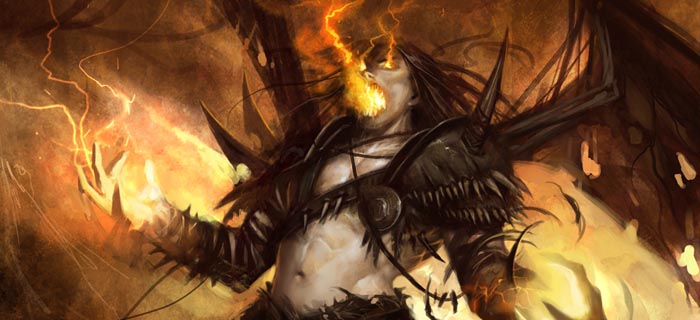T3 Reviews: Bioshock Infinite
There are few games I’ve played so complete and closed as Bioshock Infinite. It is one of the few titles I could call a piece of literary media. To clarify, something is “literary” when there are conscious decisions made for the sake of some deeper meaning, and these moments are frequent, deliberate, and meant to be considered long after one finishes the immediate enjoyment of the work. To that end, I’d also classify Spec Ops: The Line as a piece of literary media, but before I begin waxing philosophical, let me get into the review.
Nothing is perfect
Let’s start where Infinite falters, and falter it most certainly does. My first complaint, as with The Line, was the constant need for the player to be in conflict. Both games looked for every opportunity to throw enemies at you, in both cases to the detriment of the storyline. In the case of Spec Ops, I understand the need to show the frenetic pace of war and the lack of time given to make powerful moral decisions.
Infinite, on the other hand, spawned in enemies for the sake of pacing, and rare is the case where the story absolutely required combat. This is not to say there weren’t times when you could explore and learn more of the world. Indeed, the search for voxophones and chats with Elizabeth are just such cases. But, when one group of enemies fell, a new one always appeared to take its place, ultimately coming back to the first and most important foes: Comstock’s troops.
Endings
You’ve heard it from Yahtzee, IGN, GameSpot, and countless other review sites, but I cannot overstate the value of a strong ending to a piece of literary media. There must be a climax and a denouement that makes the player/reader/viewer feel as though there’s closure, a real sense of purpose achieved. In the case of an open-ended story, the final moments must fall in line with the fiction created. Inception, for all the ire its ending drew, finished on the perfect note for the world in which the story takes place, and for its central character, Cobb.
Bioshock Infinite’s ending, such as it is, establishes a temporal loop, and despite Booker’s attempt to close that loop, the after credits scene confirms a possibility for its continuation. And if the infinite realities concept espoused in the ending is to be believed, the loop will never close, because there will always be a set of realities in which it takes place.
That said, much like the original Bioshock’s ending failed to conform to the aesthetic of the rest of the game, Infinite’s finale fails on two points.
- The final set-piece differs too strongly from the rest of the game. Yes, it does make Booker out to be the master of his own destiny, and establishes once and for all Elizabeth’s essentiality to his success. But broken down to its core elements, the final fight is tower defense with no emotional attachment, a la the Little Sisters from the original Bioshock. Songbird becomes a one button death machine, no longer as attached to protecting Elizabeth as he is a slave to her will. Lastly, it serves only as a means to arrive at the ending cutscene, which is the second error.
- The final cutscene, while it does tie the disparate story threads together, again deviates from the strengths of the game’s story to that point. For 99% of Infinite, Irrational took the Half-Life 2 approach to exposition. The environment and the characters that inhabit it tell the story of Columbia. Elizabeth and Booker say little on the matter of their feelings or impressions. The player discovers everything organically. Then there’s a fifteen minute cutscene where Elizabeth explains the MacGuffin that fueled the whole game: multiple realities. On the one hand, I understand that Booker isn’t the authority on quantum mechanics, but from a game standpoint, we as players already understand much of what the worlds are about.
There’s certainly more I could say, but those are the top gripes I have with Infinite. Here are the things that worked.
A home in the sky
I could talk about the tight controls, wonderful optimization for PC, absence of pre-rendered cutscenes, fun gunplay, or a bunch of different successes in Bioshock Infinite. Instead, I’ll cover two topics as above: the characterization and the world building.
Build character
Bioshock games might make major mistakes, but they balance them with powerful writing. When I put the weak ending and predictable story aside, I look at the characters present in the game itself. Even the NPCs of Columbia have depth and roundness to them. If you listen to them when they don’t know you’re there, they’ll talk amongst themselves. It becomes quickly apparent that they aren’t just people the game’s throwing at you just so you can kill them. They’re people with lives, hopes, and experiences. You just happen to be the one person they hate more than any other.
Booker is perhaps the flattest character, but that’s the whole point. At the start of the game, he’s sent to do a job, or so he thinks. His time with Elizabeth forces him to reevaluate everything he thought he knew and valued, and by game’s end, he wants nothing more than to do right by the girl he’s now come to save. His relationship with Elizabeth is no better illustrated than an hour or so before the endgame. He’s saved her from decades of torture and conversion therapy (read: more torture), and has now vowed to end their troubles to shield her from further pain. But before any of that can happen, he has to tighten her corset.
Such a simple action, with grand implications. Normally, women have other women, usually their caretakers, tighten their corset. And usually, the wearer hasn’t just been unplugged from a life-sucking machine. But Booker’s hands, hands that have killed thousands and will kill still more, have enough gentleness in them to only cause the slightest discomfort. He remains a rough man, but with a truly loving heart.
Elizabeth, for her part, is one of the best examples of both how to fashion an escort quest and write a female character. When you first meet her, the game tells you on two separate occasions, “When you’re in a fight, don’t worry about Elizabeth, she can take care of herself.” In a game that is essentially a giant escort mission, there are few words more precious than “Don’t worry.” Add to this, the game would be much harder without Elizabeth around. Her ability to open tears and grant you advantages in a fight becomes a welcome crutch that, when denied, shows just how dependent you become on them.
Most importantly though is Elizabeth’s strength of character. She’s willful, flighty, energetic, and worldly despite having seen very little of it. She acts, sounds, moves, and is generally everything a seventeen year old girl should be. When the weight of her power and the actions she’s forced to take begin to affect her, you see it in her eyes, her voice, and the way she moves. Part of this is credit to her voice actor, Courtney Draper, but thank also the hard work of the Irrational writers and modelers.
Despite the strength of both Booker and Elizabeth as characters, I was most fascinated by the siblings Lutece, if only because of their enigmatic appearances throughout the game, and their alien way of speaking. We know that’s how they’ve always talked, but we come to understand that Lutece always understood the world in a very different way than the rest of humanity. Her and her “brother’s” movement into all realities at once only took that trait to its logical conclusion. Now burdened with infinite possibilities, their minds are stretched beyond what any other human would be capable of handlings, and even they become detached from the worlds in which they live. As the architects of the entire game and the resulting time loop, they seem to know the inevitabilities of their actions, yet stubbornly refuse to accept them. Some trace of humanity remains buried, rooted to the core of who the Luteces are.
Knowing Columbia
No —Shock game can exist in isolation from its peers (barring Bioshock 2). For this reason, Infinite should be judged in relation to its predecessors. Unfortunately, System Shock 2 is not in my repertoire of games played, so I’ll relate only Bioshock and its spiritual successor.
The world of Rapture, then, is quite different than Columbia. If anything, Rapture constitutes an “otherworld,” someplace impossible that only follows the rules of our own existence when the mood suits it. Human arrogance is the only exception to this rule, as the dangers inherent in that trait are on show around every sunken corner.
Columbia on the other hand is an extension of our own world rather than existing separate from it. Our best and our worst exist in stark relief on the streets of the city in the sky. Racism, sexism, cult ideals and brainwashing, genetic experimentation, exploitation, and more, all of them drawn from the pages of American history. At the same time, there’s hope, fleeting and disparate as it might be. Where the official doctrine is in Abraham Lincoln being a demon, there are places where his true legacy remains intact.
As the game progresses and the city begins to crumble under your and Elizabeth’s actions, the consistency of tone remains. All across Columbia the same levels of hatred and prejudice reign supreme. More importantly, though, the human element remains the central theme. The scattered voxophones tell the tales of important and secondary characters, showing that there are always hidden ambitions. Always, there opinions and dreams percolating just beneath the surface of a city floating in the clouds.








Well, finally somebody who wasn’t paid to love the game.
Anyway. Totally agree with this review. Infinite (for me, it wasn’t BioShock, seeing as there was little to no actual scavenging) was really pretty, but it wasn’t much in the way of a game. Every now and again, I let go and allowed the game to drag me by my hand across beautiful scenery and a not-quite-atrocious story. Then I asked it, “Cool, but where’s the actual game part of you?”
Then it threw terribly executed Spunkgargleweewee in my face and ran away to call Chris Hansen on me. And somewhere two paragraphs ago this implied analogy with a little sister really got out of hand.
Let’s get this clear, I liked Infinite’s sto– uh, at least the characters were nice, more on the story in a second. To me, character consistency is amongst the most important elements to any media, regardless of what it is. Funny then that I am famed for my human characters, even though I never write about humans– alright alright, focus.
The point is, most of the characters stay largely to what they are, if only because there is basically anything to them. Regardless, there’s even some development, mostly in Elizabeth, who has to face that she knows little about life despite having spent her entire life reading. (A surprisingly common trait nowadays, now that I think about it.)
Not only that, but they managed to make her both everpresent but never in the way and useful but not required. Excluding the Deus Ex Machina-ish moments, that applies in both story and gameplay.
Columbia did seem a lot more human than Rapture, I agree. It doesn’t have to be an upside, though. Halfway through the game, I suddenly forced myself to realise that I had killed more normal people than the guy who got to drop the bomb on Hiroshima. It makes you wonder how many Dukes will be taught about why Daddy will never come home by their overflowing mothers. Well, that, and exactly how Comstock managed to convince all those people to run to their deaths. With that much security, I think we can call Columbia the safest city ever, with the possible exception of the city from Monty Python’s Bicycle Repairman scetch.
Even if all those people happened to be part of the 50-man-squad that you now interrupted from their work of guarding square inch #123512, you’d think that they’d stop bothering sometime. I suppose they must really, really worship Comstock. Considering the literally only way to enter the city is to join his religion, that’s not even such a stretch.
Anyhow. It all shaped up to a nice game regardless, just not game of the whatever as everybody else called it. You know why? Because a medium which doesn’t even bother to present its story should not deserve even the titling of nice.
Throughout the game, there are infinite amounts of plot holes left open, so much that I started thinking it intentional. For instance, we’ll just accept that Comstock somehow managed to transform his entire population into something like mindcontrolled zombies, but why did he do it? All the time, we see evidence that he indoctrinated them against the Anna Dewitt brand, the false shepherd, and everything, but he should have no idea that Booker was even coming. The brand in particular surprises even the people from the ending, so Comstock has no way of knowing about it, much less ahead of time. It creates an interesting thought process on time loops and that stuff, but it is also just a screwup from the devs. Not that any deep thought was really appropriate anyhow since moments after the brand comes in important (the only time at that) they hand you a weapon which literally rips people’s heads off.
While I’m already complaining about logic, the ending was equally full of holes. But not only that, but Vigours have no reason to exist. They are there only because this is supposed to be a Bioshock game (apart from different setting, style, mood, characters, story, universe, and everything in particular) and BioShock games have plasmids, dammit! I could have accepted it if they were at least fun and diverse to use, but they all do the exact same thing, distract enemies and/or line them up for a better shot because the Vigour itself won’t deal any damage since you didn’t upgrade it. And you won’t upgrade any besides the one flavour you particularly like (crows for me) because it’s horrifically expensive for nearly no gain, seeing as you could just as well invest that money into a much better way to kill enemies, that being bullets.
On that note, supplies are so cheap yet so easily chewed through thanks to bullet sponge enemies that the outcome of the fight often depends only on whether or not there’s a vending machine nearby. Back to the point however, Vigours are never explained and the fan explanations for it are lacking at best. In the actual Bioshock series, they were central to the plot, but here everybody’s doing perfectly fine without them, but there’s also no downside whatsoever to using them.
Despite what the pseudofunny sheeple may think, being an author does not make me think that games exist purely for their story, but when it’s ridiculously holey (that word exists, trust me) like this one’s, I can’t help but complain. That and the gameplay was a bloated mess of stupidity and artificial difficulty. Why again did I spend money on this?
Nice work Comstock, but I found Bioshock Infinite pretty sound in every respect. I also felt the ending was better than Bioshock o.o (Did he just say that?). Not the climax of Bioshock, nothing will ever beat that EVER PERIOD! But the ending. I saw all the endings of Bioshock BTW and felt with all three a little exposition (oh I don’t know like maybe a sentence) could have furthered the experience instead of the dry silent cutscene after cutscene. The gameplay worked for me being hectic (just like what it would be if 15 people in the same area wanted you dead). My only true pet-peeve was length, but a review should really only answer one question for the reader. Should I play this game? My review would tell them: This is a must play game.
[…] my Bioshock Infinite review, and all reviews going forward, I’m going to start this article discussing where Dishonored […]
[…] Rapture, then leave so she can stop the temporal loop that is Zachariah Comstock. As I mentioned in my review of the base game, the after-credits scene reveals Elizabeth failed in her mission to close the […]
[…] Rapture, then leave so she can stop the temporal loop that is Zachariah Comstock. As I mentioned in my review of the base game, the after-credits scene reveals Elizabeth failed in her mission to close the […]